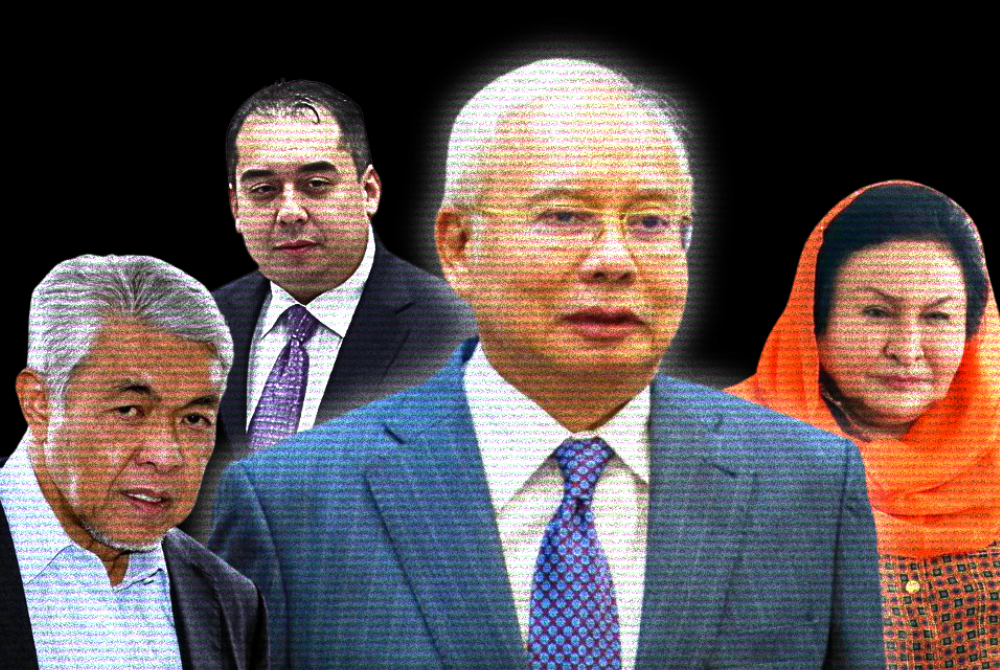IT all started with a caramel macchiato—seemingly just a simple, comforting treat. But in the context of Malaysian politics, it quickly became a symbol of something far more unsettling. After Datuk Seri Najib Razak’s imprisonment, his daughter Nooryana Najwa took to Instagram to lament that she couldn’t enjoy her favourite Starbucks order because her father must be missing his. A sweet sentiment, perhaps, but to many Malaysians, it was a tone-deaf reminder of the privilege that still shields the powerful—even when they’re behind bars.
And now, just when you thought things couldn’t get more absurd, the former prime minister is one legal hurdle away from potentially serving his sentence from the comfort of his own home.
On Monday, the Court of Appeal overturned a High Court decision that had blocked Najib from seeking judicial review. At the centre of this legal fight is a controversial royal addendum, allegedly signed by the former Yang di-Pertuan Agong, which may allow Najib to serve his sentence under house arrest. But don’t pop the champagne just yet—this ruling only clears the way for a full hearing at the High Court. For now, Najib remains in Kajang Prison, though his conditions are far from ordinary.
Bossku's Life Behind Bars: A Tale of Privilege
A recent TikTok video, featuring an alleged former inmate of Kajang Prison has shed light on Najib’s life behind bars. Apparently, while other prisoners are living in cramped conditions, "Bossku" resides in a private cell—equipped with a computer, exercise bike and the freedom to roam the prison grounds at will. It’s a stark contrast to the reality faced by ordinary detainees. This preferential treatment only fuels the growing perception that Malaysia’s justice system is not blind but rather peeks through a veil of privilege.
The Whine of Privilege Continues
It’s no surprise that Najib’s family and supporters are vocal in their defence of his "special” treatment. Most recently, his son, Nazifuddin appeared on a podcast asking why the government couldn’t show "a little mercy” to the eldest son of Malaysia’s second prime minister. His plea, however, was met with widespread mockery. One netizen aptly pointed out, "The grandfather sacrificed for the country, but his son made Malaysia the sacrificial lamb. Big difference, bro.”
An Apology Wrapped in Denial
In a bizarre twist, just days before the High Court was set to hear another corruption case, Najib issued a public apology for his role in the 1MDB scandal. But there was a catch—he denied being the mastermind behind it or having any involvement with the fugitive financier Low Taek Jho or Jho Low. Predictably, this apology was followed by an outpouring of support from Najib’s loyalists. The MIC took it a step further, organising a prayer session at Batu Caves, where over a thousand supporters gathered to chant "Hidup Bossku” in a show of solidarity.
While their devotion was undeniable, it raises uncomfortable questions. Where were these prayers when young Malaysians like T. Nhaveen and Zayn Rayyan Abdul Matiin tragically lost their lives? The selective compassion is a glaring indictment of misplaced priorities.
MIC deputy president Datuk Seri M. Saravanan defended his party’s loyalty to Najib, claiming that he was the only prime minister who did "so much” for the Indian community. Yet, under Saravanan’s own tenure as a minister, systemic issues affecting the community have persisted. His defence of Najib’s alleged corruption as being "at the wrong place at the wrong time” is the perfect example of Malaysia’s politics of excuse-making—where accountability is often an afterthought.
A Nation Disillusioned
Meanwhile, the government’s handling of the royal addendum—a document supposedly granting Najib house arrest—has left a sour taste. From Deputy Prime Minister Datuk Seri Ahmad Zahid Hamidi’s controversial dismissal not amounting to acquittal (DNAA) to Datin Seri Rosmah Mansor’s own legal drama, public trust in Malaysia’s justice system continues to erode.
Reality in the Comments Section
For a true sense of the nation’s sentiment, just take a scroll through the comments section of any news article. The discontent is palpable, the sarcasm biting and the despair undeniable. It’s clear that Malaysians are tired of the charade. As one commenter - quoting the cast of Friends during the revelation of Monica and Chandler's relationship put it: "We know what’s going on, and we know you know that we know.”
The saga of Najib, from caramel macchiato cravings to the looming possibility of house arrest, is more than just a story about one man’s fall from grace. It’s a reflection of a system that often seems rigged in favour of those who already have the most.
As Najib waits for his next court date, the real question isn’t about where he’ll serve his sentence. It’s whether Malaysia will ever truly hold its powerful accountable—or if justice will remain a luxury reserved only for the privileged.


